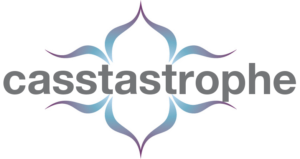Sometimes in my conversations with my dad the idea of Simple Machines comes up: the inclined plane, the lever, the wedge, the wheel and axle, the pulley, and the screw. These 6 machines are the basis for most complex machines in our world, including some in the human body itself. Today I’d like to talk about the simple tools we need for healing, self-care, and moving forward. Like a highlights reel, or a personal montage — I have previously written individually about these tools: SMART goals, lists, journals, gratitude, mindset, and rest. And one I haven’t tackled directly but is just as important as the others: hydration. But lets take another look at them.

SMART goals Goal setting is something we all do, all of the time. Whether it’s as simple as getting to work on time, or as complex as winning a triathlon, goals are all around us. I talk about SMART goal setting in this previous blog post. Knowing what you are aiming for and how you are going to get from here to there is just as important as knowing what you want in the first place. Without setting goals for ourselves, we tend to drift in our life, from one day to the next, listlessly not knowing what to do next. Having realistic goals and following through gives our life a sense of purpose. What will you aim for next?
Lists
Lists are one of my favourite tools. I have lists of goals, lists of journal prompts I want to work with, gratitude lists, positive mindset lists, and as you’ll read onwards — lists of how to sleep better, and maybe next I need to work on a list about hydration! Any which way you slice if, I’ve been keeping lists and editing and reworking them for the specific scenario for most of my life! I use a packing list to make sure I’m bringing everything, and then when I pack up to head home, I use the list to make sure I’m not leaving something behind. I have medication lists of myself and my son, to check with the doctor. I have lists of future book titles I’d like to work on. And on. And on! Check out my previous post about lists to get some better ideas about them, or even this one more specifically about checklists and how they are used in every day settings.
Journals
Start with my original post about journaling. It gives some great tips on how to get going. But then, once you’ve started journaling, I think you’ll never stop! Being able to process on paper and make what is in my mind tangible in front of me is a wonderful tool to have in my kit. I use all kinds of different formats for journaling. From writing letters to myself when I was younger/older. Or answering a prompt I’ve found online. Or freeform, letting it all out. Journals have literally saved my life over the years, letting me get my inner demons out and then ripping out pages and going outside to have a proper little fire, releasing into the world the energy pulling me down that I no longer need. Whatever format you take (maybe even lists!) with your journals, being able to write down your thoughts clearly so you can see them and work with them is so beneficial to all you do. Try it, you’ll get the hang of it and wonder why you waited so long.
Gratitude
Being thankful for what we have, for what is given, is more than the basis of just good manners. Like mindset, gratitude allows us to think about our lot in life in a way that invites positivity while letting go of negativity. Not everyone has as much as they need — it is difficult to be thankful on an empty stomach. But being thankful for a new day, a new opportunity to succeed, a new chance to fill your life with all of what matters to you most, is what we all strive for. Sometimes our days are jam-pack full of work and responsibilities. Remembering to take some time away from that to smell the flowers and be grateful you are alive can seriously have positive effects on your mental health. If you’re looking for more specifics, you can check out this blog post I wrote on the topic.
Mindset
One of my favourite quotes, attributed to Henry Ford, “Whether you think you can or can’t, you are right.” is spot on when it comes to mindset. Your mindset determines what you will focus on. If you think you’re going to lose, and you focus on this, you are probably going to be part of a self-fulfilling prophecy in the very near future! I’ve written about all of this in the past, but taking a new look at mindset is never a bad idea. What you tell yourself in your inner monologue matters. Yes, we are not our thoughts — sometimes thoughts come up that go against what we believe and we wonder where they came from. Everyone has those streaming thoughts. The difference between people is the level of attention we give to the different kinds of thoughts. Our attention to thoughts is like building up a muscle. You have to work at it — focusing on the thoughts we create that build us up and fill our cup, and let go of the thoughts that just filter through and might cut us down, and then learning to know the difference.
Rest
If you’re not getting enough rest, you can check out my earlier blog about curing insomnia. Suffice it to say, sleep is the foundation we build every other aspect of our lives on. If you are not getting enough rest, you are knocking everything in your life off-kilter. Rest doesn’t always mean sleep, sometimes it is about taking a rest from digital media, curling up in a comfy spot with a paper book, drinking tea and letting your mind wander, or whatever brings you rest and relaxation during the busyness of your day.
According to the National Institutes of Health, “Sleep deficiency is linked to many chronic health problems, including heart disease, kidney disease, high blood pressure, diabetes, stroke, obesity, and depression. Sleep deficiency is also linked to a higher chance of injury in adults, teens, and children.”
Not everyone needs 8 hours of sleep a night. Some people need more, some less — if you’re waking up to your alarm every morning and feeling awful, play with the times. Maybe you’re going to bed every night at a time that is forcing yourself to wake up in the middle of a sleep cycle. Try adding or removing an hour from the sleep you are getting. Some people feel completely rested after 6 hours and 7 or 8 would make them feel tired again. This will depend on your individual circadian rhythms for where you live on the planet and some say, for where you were born. I truly believe if you can get your sleep working for you, with a little care, everything else will fall in line.
Hydration
According to Harvard University, “Drinking enough water each day is crucial for many reasons: to regulate body temperature, keep joints lubricated, prevent infections, deliver nutrients to cells, and keep organs functioning properly. Being well-hydrated also improves sleep quality, cognition, and mood.” And the converse of that, failing to drink enough water can cause dehydration, which leads to adverse symptoms like fatigue, headache, weakened immunity, and dry skin.
If you want to remain healthy and fit of mind, consuming enough water for your body size is essential. The “8 glasses a day” rule isn’t really a rule, there’s no specific number that everyone ought to drink in order to stay hydrated, because every body is different. Here’s a great article over at McGill University that talks about this myth and what you body really needs.

If you can implement some or all of these tools in your life, I’m willing to bet you’ll feel more in control of what goes on in your life, have a better sense of self, and have an easier time dealing with the changes that come in life. If you’d like to work on a goal, or learn more about any of the above tools, you can reach out for a 30 minute free discovery call and we can connect!
